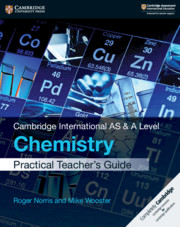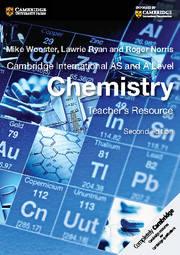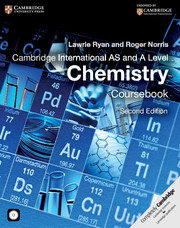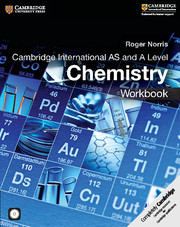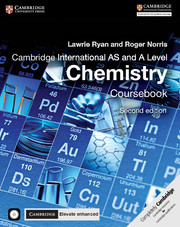This teacher's guide complements the practical workbook, helping you include more practical work in your Cambridge International AS & A Level Chemistry lessons. It contains advice about planning investigations, guidance about safety considerations, as well as differentiated learning suggestions to support students who might be struggling and those who are more able. This guide contains answers to all the questions in the practical workbook and includes sample data to be used when an investigation cannot be carried out.
Features
- Specific guidance with setting up and safely carrying out each of the investigations in the Cambridge International AS & A Level Chemistry Practical Workbook saves you preparation time.
- Differentiated learning suggestions support students who might be struggling, and stretch students who are most able.
- Contains all the answers to the questions in the practical workbook to help you mark quickly and confidently.
- Contains sample data you can use when an investigation cannot be carried out.
Table of Contents
- Introduction
- Safety information
- Quick Skills
- 1. Masses, moles and atoms
- 2. Structure and bonding
- 3. Enthalpy changes:
- 4. Chemical reactions
- 5. Equilibrium
- 6. Rates of reaction
- 7. The properties of metals
- 8. The properties of non-metals
- 9. Hydrocarbons and halogenoalkenes
- 10. Organic compounds containing oxygen
- 11. More about enthalpy changes
- 12. Electrochemistry
- 13. Further aspects of equilibria
- 14. Reaction kinetics
- 15. Transition elements
- 16. More about organic chemistry
- 17. Identifying organic compounds.
Advice on useful tools
Advice on useful tools, activities and timetabling from teachers experiencing school closures.
Cambridge GO
All our supporting resources have now moved to Cambridge GO – the new home for your Cambridge digital content.
Listen to our podcast
Listen to our podcast to discover teaching inspiration & advice from leading educational thinkers.

